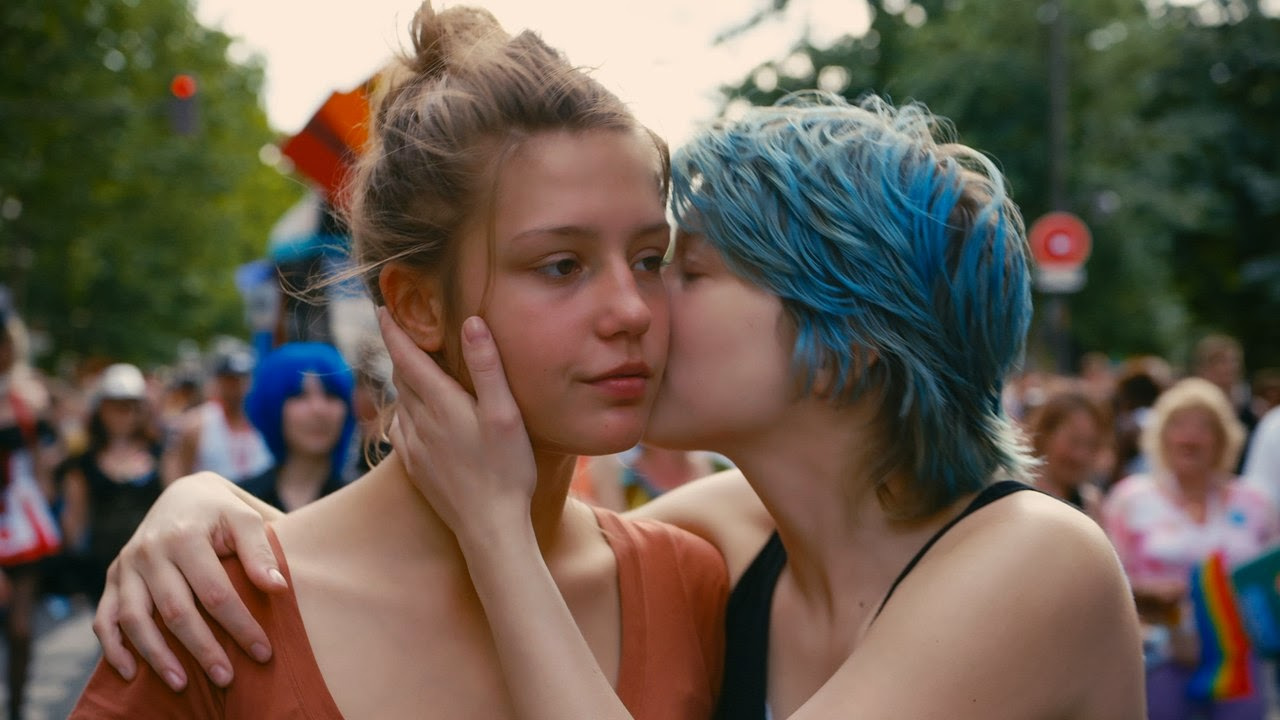
“I believe in the flesh and the appetites;
Seeing, hearing, feeling, are miracles, and each part and tag of me is a miracle.
Divine am I inside and out, and I make holy whatever I touch or am touch’d from;
The scent of these arm-pits, aroma finer than prayer;
This head more than churches, bibles, and all the creeds.”
To me, this excerpt from Walt Whitman’s “Leaves of Grass” best captures the essence of sensuality. While usually associated with sex, sensuality is really anything that heightens our senses with pleasure.
What is considered sensuous could be that tickle of satin on your skin, the sight of light perfectly reflected off a smooth neck, a bite of a scrumptious slice of cake, a velvety voice, or even the first of the monsoon showers and the whiff of petrichor it leaves behind. We may not always pay attention to these cues, but they remain unparalleled proofs of the raw beauty of the world around us. And when we yield to our senses, we open up a plethora of sensations – a whole world inside us.
In movies, our perception of sensuality is limited to what we see and hear – the chemistry between the characters, the way the actors speak or move, the choreography, the colours and textures we see on screen – occasionally augmented by a complementary soundtrack.
Yet, there are films that are able to transcend our perceptual fields and make us feel sensations without direct stimulation. These are some of those films worth watching from this century.
15. Lust, Caution (2007)
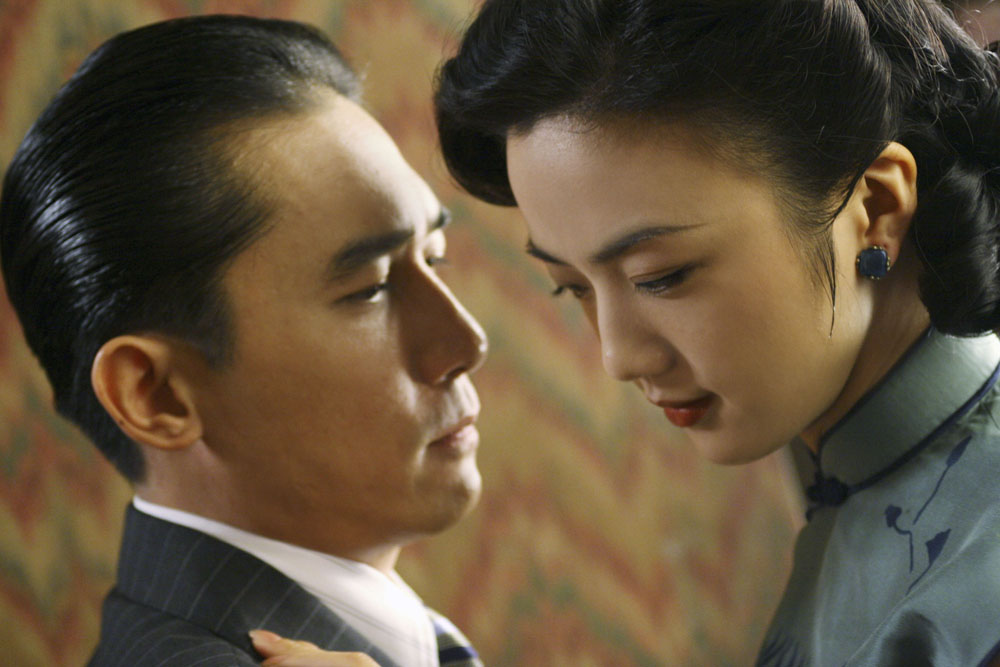
Directed by Ang Lee, “Lust, Caution” is an erotic espionage drama set in Hong Kong in 1942, and Shanghai in 1938 during the Japanese occupation of China. A group of Chinese university students plot to assassinate Mr. Yee (Tony Leung Chiu-wai), an officer working for the puppet government.
Among these students is a talented young actress, Wong Chia Chi (Tang Wei), who shoulders the task of taking on the undercover role of “Mrs. Mai” to enter Mrs. Yee’s social circle and lure her husband into a trap. Things get complicated, however, as Chia Chi becomes emotionally involved with the officer.
The relationship that Chia Chi, as Mrs. Mai, develops with Mr. Yee, is wonderfully complex. What starts off as simple attraction between the two escalates into a violent affair full of rough sex (in positions that warrant a try-this-at-your-own-risk disclaimer), to a strange kind of intimacy.
As we watch the film, we witness Chia Chi fear Mr. Yee, as well as grow fascinated by him and desire him. It’s a confusing situation to be in, and watching the film, we are confused as well. There is a scene where their sexual tryst may even be interpreted as rape, but one can never be sure.
In contrast to the graphic eroticism portrayed through the protagonists’ sexual relationship, the rest of the film has a quiet sensuality. From the perfectly manicured hands of the ladies playing Mah-Jongg, the beautiful outfits and home interiors, to shots such as one of Chia Chi as she sticks her head out of the window to feel the rain on her face, every frame of the movie is visually delightful.
14. Venus in Fur (2013)
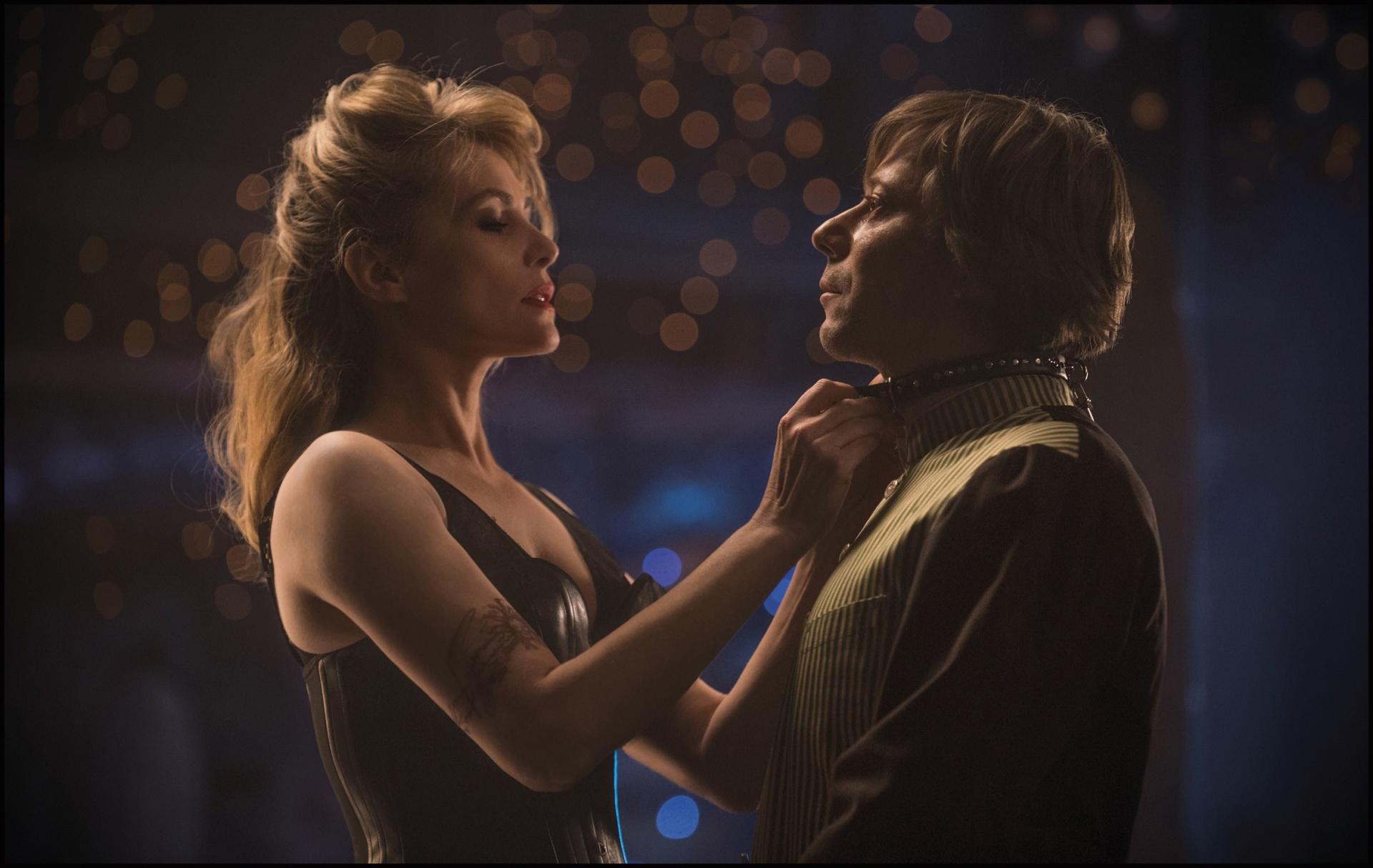
“Venus in Fur”, Roman Polanski’s latest film, is based on the play of the same name by American playwright David Ives. The play, in turn, was inspired by the 19th century novella “Venus in Furs”, written by Austrian author Leopold von Sacher-Masoch. It would be relevant to mention here that in his writings, Sacher-Masoch often talked about the tendency to derive pleasure from pain and humiliation, so much so that this practice was termed “masochism” after the author’s name. Polanski’s film deals with the same subject.
The film, like the play it’s based on, has just two characters and is shot entirely in a theatre. Thomas (Mathieu Amalric) is the writer-director of a new play adapted from Sacher-Masoch’s novel.
At the start of the movie, as he is packing up to leave the theatre after a day of disappointing auditions for the lead character, an actress named Vanda (Emmanuelle Seigner) arrives and persuades Thomas to let her read for the part. Seemingly unqualified for the role, Vanda astonishes Thomas as she effortlessly slips into character (and her tight dress and long leather boots) and, intriguingly, also knows every line of the play by heart.
What follows is an elaborate role-playing game as the director and the mysterious actress enact parts of the play together, discuss the characters’ motivations, change into different costumes, and flirt with each other. As they do so, the lines between fiction and reality often blur, and it’s difficult to say whether Thomas and Vanda are playing themselves or their parts.
Either way, we see on screen two characters in a complex sexual power-play. “Nothing is more sensual than pain,” Thomas tells Vanda at one point. “Your ideal woman may be crueller than you care for,” she warns him. There is a palpable tension between the two actors and it only intensifies as the film progresses. Even with no explicit sex scenes, the dialogue and the body language of the actors make this film extremely erotic and sensual.
13. Y Tu Mamá También (2001)
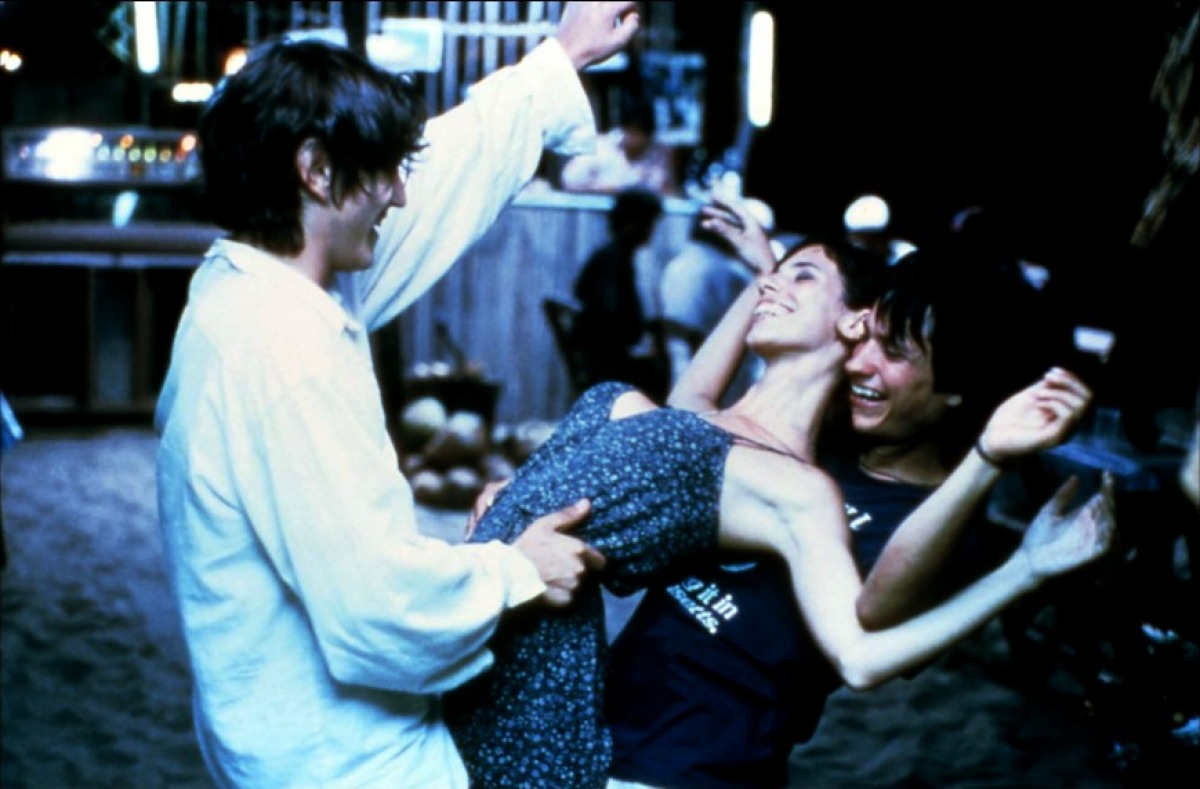
This Mexican film, directed by Alfonso Cuarón, has been described as a teen comedy, a road movie, and a coming-of-age film – it’s all those things, or possibly none of them. “Y Tu Mamá También” is what you want it to be.
Set against the backdrop of socio-political turmoil in 1999 Mexico, the film tells the story of two teenage boys who take a road trip with a married woman in her late 20s. The two boys are Tenoch (Diego Luna) and Julio (Gael Garcia Bernal) – perpetually horny brats for whom joint masturbation is a satisfactory pastime when they aren’t getting laid.
The married woman is Luisa (Maribel Verdú), who the boys meet at a wedding and try to impress by bluffing about taking a trip to a fictional beach called “Heaven’s Mouth”. The boys invite her to accompany them and though she initially declines, she takes them up on their offer later after she finds out that her husband has been cheating on her. The film follows the three characters on their trip as they talk about sex, make out, fight, make up, and eventually experience more than just sex.
“Y Tu Mamá También” depicts masturbation and sex (and there’s lots of it) without any embellishment. It’s real, carnal, and often unpretty. Tenoch and Julio are sexually inexperienced and, though they wouldn’t admit it, their ineptitude is conveyed in the way they clumsily grope their partners and rush towards climax.
Luisa is their teacher – playful and sexy – who teases them, seduces them, and patiently guides them to see beyond their own hard-ons. It’s Luisa and the picturesque Mexican landscape that provide the sensual elements to this film.
If you’ve read so far, you probably think that “Y Tu Mamá También” is about two teenagers living their sexual fantasy. Well, on the surface, it is that, but if you care to look deeper, the film is much more than a simple sex romp.As Roger Ebert wrote in his rave review, “Beneath the carefree road movie that the movie is happy to advertise is a more serious level–and below that, a dead serious level.” These depths are provided by the scenes outside the car in the drive throughout Mexico, the characters we meet en route, and the inner lives of the protagonists.
The details of most of these are shared with us by an unseen narrator. They serve as a kind of alternate narrative about the socio-political state of Mexico during that time, and the rampant economic inequality. Even beyond these details, the symbolism and subtle cues in the plot leave much for the audience to interpret, and make “Y Tu Mamá También” an especially poignant film.
12. I Am Love (2009)
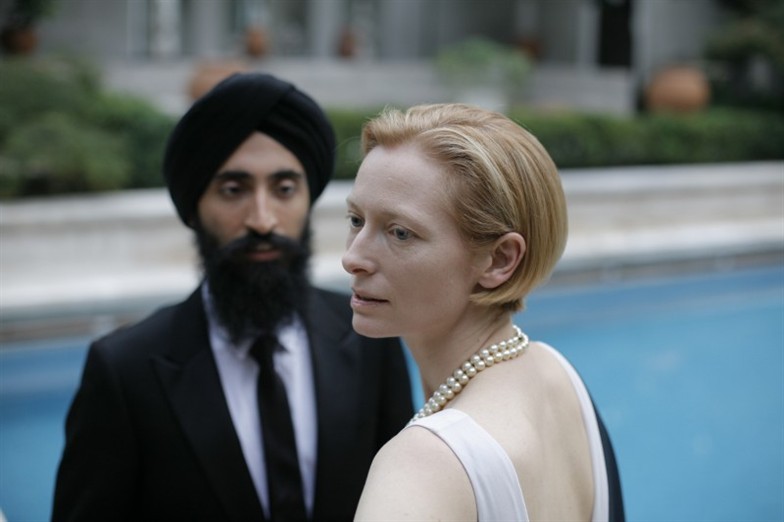
Directed by Luca Guadagnino, “I Am Love” is a drama set in Milan. It follows the wealthy Recchi family as they come into turbulent times set off by forces of passion. The protagonist is Emma, brilliantly played by Tilda Swinton. She is a stylish Russian-born lady who became a part of the Recchi family after marrying the patriarch’s son, but decades later still remains an outsider.
Yet, Emma is perfect in every role that she plays – be that of a wife to her dull husband, mother to her three grown children, daughter-in-law, or hostess to the family’s guests invited to their innumerable dinner parties. That is, until her son’s talented chef friend, Antonio (Edoardo Gabbriellini), kindles her senses and she finally gives in to them.
“I Am Love” is a thoroughly satisfying sensual treat that we experience mainly through Emma. The close-up shots of her – as she eats, drinks, makes love, or even just smells the leaves – make us sense all that she experiences, at least as much as a vicarious experience can possibly allow us to. Perception of these sensations is accentuated by the lighting, the colours, and the swirling music, perfectly capturing the mood of the scene.
For foodies, especially, this film is a must-watch. Food plays a huge part in “I Am Love” – and whether it’s picking vegetables, cooking, table-setting, or eating, Guadagnino has made every aspect of it look beautiful, and every plate enticingly delicious. There is a scene in the film where Emma practically swoons as she eats a dish of prawns cooked by Antonio. I, for one, found myself almost drooling watching it.
“I Am Love” is a film that’s worth watching simply for its physical beauty if nothing else. If food doesn’t interest you, watch it for the spectacular European locations, the elegant clothes, the gorgeous people, and the bright contrasting colours in every frame.
11. Closer (2004)

Written by Patrick Marber and directed by Mike Nichols, this American film set in London is a haunting melodrama. The stellar cast includes Jude Law as Dan, a ‘sort of journalist’ who writes obituaries for a newspaper; Natalie Portman as Alice, who was a stripper in New York before she moved to London to end a relationship; Julia Roberts as Anna, an American photographer; and Clive Owen as Larry, a dermatologist. The characters meet each other in a series of incredible encounters and go on to develop relationships as they struggle with love, lust, and truth in their untruthful lives.
A character in the film says that, without truth, “we’re animals.” In another instance, the same character says, “What’s so great about the truth? Try lying for a change, it’s the currency of the world.” This dichotomy of truthfulness and deceit in relationships and human nature, in general, is the subject of “Closer”. Do we really need to always know the truth? Maybe a lie is sometimes kinder.
As if to illustrate the point, the film explores its subject with such unapologetic honesty that in many instances, you’d feel like you’ve been punched in the stomach. At other times, you’d be wincing at the biting dialogue, chuckling at the dry wit, or sitting there amazed as Natalie Portman, in a G-string and a pink wig, manages to look both furious and enchanting.
“Closer” is heavily reliant on dialogue. Even the most sensuous scenes – be it a simple photo shoot for the publicity of a book, or a near-pornographic scene at a strip club – have the characters talking.
Watch the film to witness the power of words. Of course, the words would fall flat if not for the brilliant performances of all the actors. Owen and Portman both won the Golden Globe for their performances, and the film itself received several accolades. If you want to keep your rose-tinted glasses on, however, this is certainly not a movie for you.